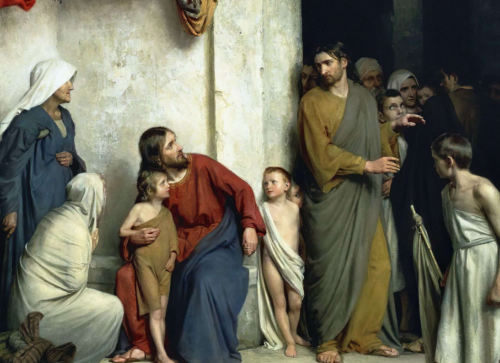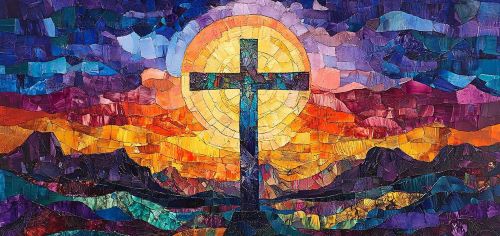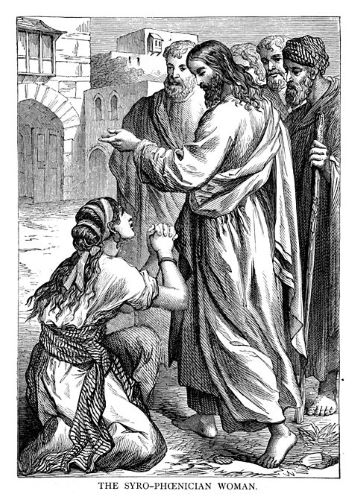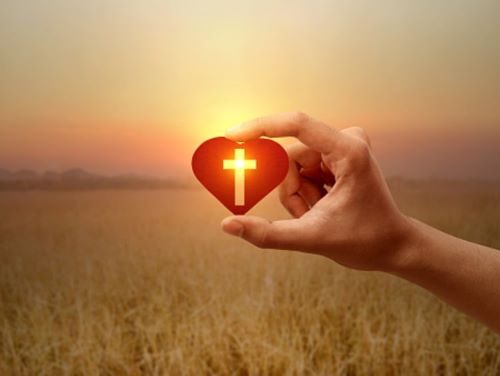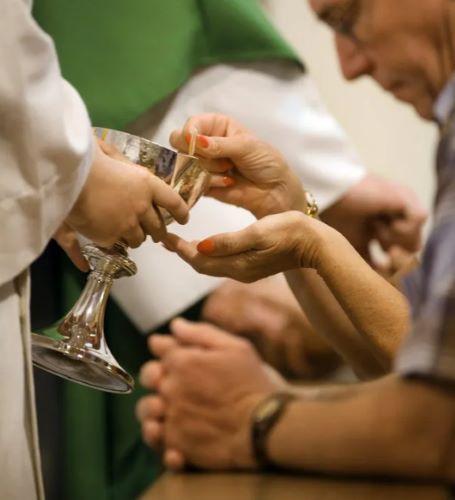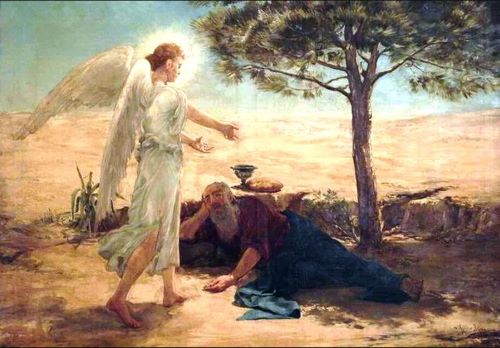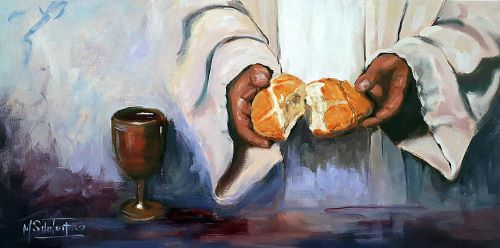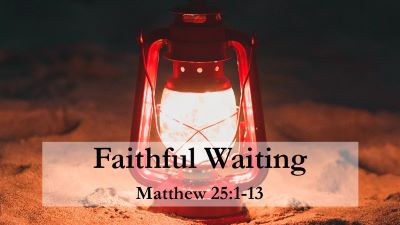
Trimming Our Lamps
Year A – Advent 1 (A 7-week Advent)
Joshua 24:1-3a, 14-25
Psalm 78:1-7
1 Thessalonians 4:13-18
Matthew 25:1-13
May the words of my mouth O God… speak your truth…
Asherah… Baal… Marduk… Tiamat… Shamash… Ishtar… these were some of the more significant ancient Near Eastern and Babylonian gods and goddesses about which we know… the old gods… even as monotheism was emerging… in Judaism’s earliest years… there was the belief that each city had its own god… each one thought to be all-powerful… and in today’s reading from Joshua… we have a record of this transition… a record of an emerging human awareness that there was only one God over all creation… one God who was the author of all that was… and is… and is yet to be… and an acknowledgement that the humanity could act more in accordance with this singular divine impulse… or could act less in accordance with it… and this insight was inscribed in the second of ten commandments… Thou shalt have no other gods before me… and in this passage from Joshua… there are fifteen times the people are asked about whether they had served… or would serve the old gods… or YHWH… and Joshua exhorted the people to put away any foreign gods that remained among them… and issued strict warnings about serving these foreign gods after having taken vows to serve YHWH…
But the old gods continued to hold sway… for example… in the History Channel’s series’ about Vikings… they talk about the old gods… Odin… Loki… Freyja… Thor… and they sometimes compared the old gods… to the Man / God Jesus… and there are conversations… sometimes lengthy conversations during which many of the characters ask each other… echoing Joshua’s question… Who do you serve… and this question… and others like it… took on critical importance… because who you served… would determine whether or not you would enter Valhalla… or Heaven… and in our reading from today’s Gospel… in the parable that he offers up… Jesus tells us what the Kingdom of Heaven will be like…
And from the beginning… the parable is symbolic and surrealistic… because usually… only one virgin comes out to meet the bridegroom… but here we have ten… the number of fulfillment… and we’re told that five of the bridesmaids were wise… but the Greek word isn’t sophia… it’s phronimos… and it’s a different kind of wisdom… less ethereal and more earthy… less conceptual and more street-smart… with more book-smarts and common sense… and we’re told that the other five bridesmaids were foolish… and the Greek word that’s used is mah-reh… and from it… we get the word moron…
And in the parable… the Bridegroom is delayed… and everyone gets tired of waiting… and falls asleep… and of course… the Bridegroom is Jesus… who comes at midnight… ] in the darkest time… Christ comes to us… and as they were aroused from their sleep… and came back to their senses… the foolish said to the wise… Give us some of your oil… for our lamps are going out… and as John Shea wrote… the wise refuse for seemingly foolish reasons… they appear to be looking out only for themselves… rather than sharing what they have with those in need… but the truth of this kind of oil is… you have to have your own… each person must supply oil from the ways in which they live out the teachings of Christ… one cannot develop spiritually… by taking the consciousness… and action of another… as your own…] a friend who has studied… cannot prepare you to take a test… or to update the metaphor… as the 6th century Bishop of Syria… Isaac of Nineveh did… There is a love like a small lamp… fed by oil… which goes out when the oil is ended… or like a rain-fed stream… which goes dry when rain no longer feeds it… but there is a love… like a spring gushing from the earth… never to be exhausted… ] Shea adds… the wise virgins are in touch with this inexhaustible river… and so their oil is continuously replenished… rather than consumed… like Jesus said in John 4:14… The water that I will give will become in them a spring of water gushing up to eternal life…
And when the five bridesmaids came back from the marketplace… and the door was closed to them… they didn’t understand that the Kingdom of Heaven had already been passed on to them… and the metaphorical door would open when they had the ability to open it for themselves… because it would be the lamp of their own consciousness… burning from the oil of their dedicated lives… that will open the door… like how Dorothy always had within her the ability to go home to Kansas… and the message of this parable… to Be Prepared… was soaked with a sense of urgency… because when it was written… everyone thought Jesus’ return in glory… as the bridegroom… would happen very soon… would happen in their lifetimes…
Brian Whitfield… who’s Professor [ and Chair of the Columbus Roberts Department ] of Religion at Mercer University in Macon, Georgia… wrote… We may choose to center our lives on the power of the past… on family tradition or ancestral piety… longing for what once was…] we may choose to shape our lives around the values of the prevailing consumer culture… trimming our horizons to the demands of market forces… both choices ensnare us in the power of sin and death… ] or we may choose an identity not based on nostalgia or cultural accommodation… but on the grace of a God of liberating love… who leads us into a new era of freedom for life in community in a land of promise… the choice… as Joshua reminds us… is ours… yet we must make this choice… not once for all time… but again and again… ] like the ancient Israelites… we need times and places which remind us of the gracious acts of God… and call us back to our confession…
So what old gods do we continue to serve… any… what old gods grab our attention… our admiration… of which old gods are we jealous… and how do we become… or remain aware of the power they hold over us… ] for what kind of tests do we think we can pull all-nighters… and to which ones do we devote a lifetime of preparation… and how do we remain prepared… remain aware… remain awake when we suffer from scheduling fatigue… and false starts… and deadlines that have come and gone… when waiting for Jesus feels like waiting for Godot… and how do we learn that being prepared for Jesus’ return just… simply… requires us to focus on every-day faithfulness… rather than the big picture… and how do we live out and own the truth… as Natalie Wigg-Stevenson wrote… that Jesus isn’t waiting until we’re ready… he’s waiting until he is…
I’d like to end with a poem called Olive Oil — Extra Virgin… by Maren Tirabassi…
It doesn’t make me feel any better
that four of my friends
are out here with me
on the other side of the wall
from the music.
It was my oil, my light,
and I squandered it
on terribly important committees
(well, everyone said they were),
and those jobs that could not be done
by anyone but indispensable me,
on rising early for the telephone,
and staying up late
to answer the e-mail.
And my lamp burned out
before I figured out a few things
that really matter,
before I spent time,
lovely time, with the folks
who are worth my waiting,
long before the door opened
on the party in my life.
Of course, I don’t blame the
other guests —
the ones doing the Macarena,
crunching candied almonds,
catching the bouquet.
No one can give another person
oil at midnight,
everyone’s lamp burns out alone —
but I wish I’d saved enough for dancing.

